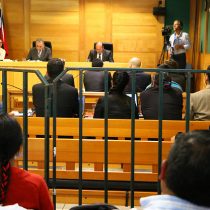
Take a deep breath and take your phone. On the screen open a messaging program and type. She’s thought for several hours about the words she’ll use to tell her mother she wouldn’t want to spend this weekend with her. In the end, it is decided by a slightly aseptic and a little technical explanation: the pandemic, the time available. Light a cigar thinking about what summer will be like.
He once pressed “send” he felt a slight vertigo. You always feel something strange and quick when you send a message or an email. It’s the feeling of losing your own words thrown into a vacuum. Once sent, they become collective, they are on the network and the network are their words and those of all.
He also felt relief that he could send that message without having to talk to his mother. He thought how uncomfortable it would have been to see her, to scrutinize her reaction, to change perhaps the words she had chosen to explain at the last minute. He found it all the easier to decide not to see his mother and tell her through a WhatsApp. He even thought that the pain his mother expressed to him live now was just his speculation, pure imagination. Or maybe the memory of other feelings chipped by scenes from the past that still mean something.
He was paralyzed for a second. You have an injunction review hearing in a few minutes as your calendar alerts you. He works as a guarantee judge.
Remember when a few years ago, “Chilean procedural reform” began. A lot of good things were said there about an oral justice system, transparent and immediate. Everyone wanted to be new judges, new ways, speed. It was like Chile itself in the nineties: all promises, every return. Criminal justice undertook the most significant journey of all judicial institutions, the old inquisitive system left so as not to return.
He thought the attractive bartender lies collapsed at his feet. He connects to one audience after another at home through his computer. It always takes him a few seconds to recognize who the defender is, who the prosecutor is and who is the defendant. You no longer have one table on the left another on the right. Sometimes the zoom distributes the interveners in a similar way, but apparently it is chance.
For a second in his head, questions return about what has been lost to the pandemic and this justice with online hearings. He has divorced towards the end of winter and partly sees his son by zoom, as in an audience.
There was a smell of Rondizzoni Street and the cement of santiago’s justice center. A smell of lawyers waiting to get into the courtroom. A smell from that room, a smell from the microphone and the gendarmerie officials who bring the defendant. The smell, he thinks, is not a serious reason to argue that something has changed, but there was also a smell of wet dirt from his schoolyard and a smell of teenage parties and a smell of the first kisses with the school sweets.
The hearing begins and you have to decide whether or not the defendant will go to pre-trial detention. There are no relatives at the bottom with glassy eyes. He also doesn’t listen to the accused or his breathing, and he doesn’t see clearly in those black boxes on the screen if he’s looking at infinity or looking straight into his eyes waiting for some kind of mercy.
There’s something that looks like the message you sent your mother a while ago. It will now draft a resolution that is partly aseptic and partly technical. He’s relieved. The nerve that sometimes made him look at a fixed point in the courtroom while dictating the resolution now seems diluted or being inside his house.
On the one hand, he thinks, it is not a bad thing that the decision lacks all that emotional dimension. Remember that there are even academic proposals to conceive of judicial activity as an activity “without empathy”. Thus justice would be focused precisely on the plausibility of the narratives submitted by the parties and on the interpretation of the rules.
But, you don’t remember this feeling. Just as it has seemed easier to say no to your mother it seems that it is also easier to decide the fate of a person you see on a screen. A person who is not embedded in the smell of the attorneys’ hearing room or the city. To what extent is the accused real? To what extent is your mother’s pain from her lack of visitors really a memory and nothing else?
Finish the hearing. He doesn’t see the gendarmes move the accused down the aisle on the way to deprivation of liberty. You have a few minutes before the next hearing and then you’ll see your child on the same screen. Light another cigar on the balcony looking at the extension of the ceilings Santiago. He sees on his cell phone that his mother has written “ok.”
The content poured into this opinion column is the sole responsibility of its author, and does not necessarily reflect the editorial line or position of El Mostrador.





